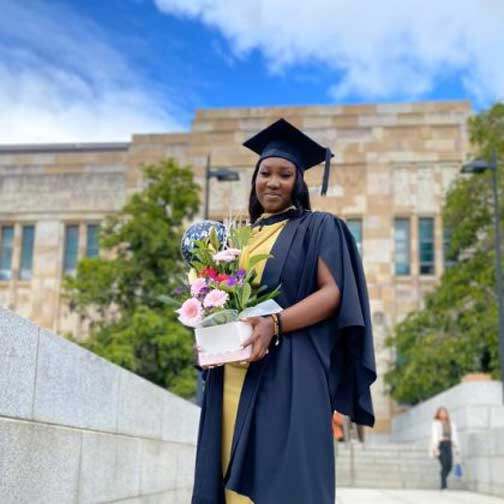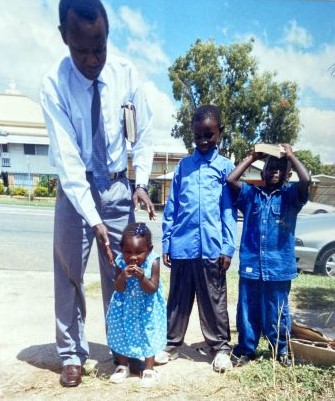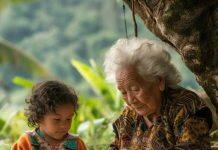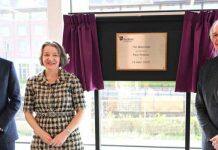Consulata Bilal’s experiences as a patient give her a unique perspective as she embarks on her career.


The 21-year-old graduates this week from The University of Queensland with a Bachelor of Science, after navigating the challenges of living with a debilitating disease.
“After 10 years of excruciating pain every month, I was finally diagnosed with endometriosis last year,” Consulata said.
“I felt like a weight had been lifted off me … that what I had been experiencing was validated and it wasn’t normal to not be able to walk from the pain.”
Endometriosis had meant frequent hospital stays and days off school and uni, sparking a re-think of her study path.
“I initially enrolled in a dual degree program but had to scale back because of my illness and did a major in Biomedical Science instead,” Consulata said.
“My ultimate goal would be to get into medicine, possibly specialising in gynaecology so I can support women.
“I’ve enrolled in UQ’s Master of Magnetic Resonance Technology to hopefully get some clinical experience along the way.”
Consulata is the middle child of 6, born in Uganda after her family fled war-torn South Sudan.
They arrived in Australia as refugees in 2003, settling in Springfield.


“Growing up in a big family with often one income there wasn’t a lot of money, including for things like extra-curricular activities,” Consulata said.
“I’ve always been very conscious of the opportunities my parents have given to us here and determined to do my best.
“I was really good at maths and loved solving problems, but I was also really interested in science, human anatomy and physiology.”
The talented student was awarded an academic scholarship after being identified by UQ’s Young Achievers Program in Year 10.
“My Dad told me, ‘you don’t see a lot of people who look like you in science’ – and he was right,” Consulata said.
“I see this as an opportunity to be a role model and show other African women that this field of study is a possibility.”
After years with endometriosis, Consulata is due to have further surgery later this year to remove it.
“Having this experience, I’m definitely much more empathetic in terms of what other people might be going through and really passionate about helping others,” she said.
UQ hosted 10 graduation ceremonies in July for 4000 students, including mid-year graduates and those unable to attend previous ceremonies during the COVID-19 pandemic.
Image above left: A young Consulata (third from left) with her family soon after arriving in Australia.








































